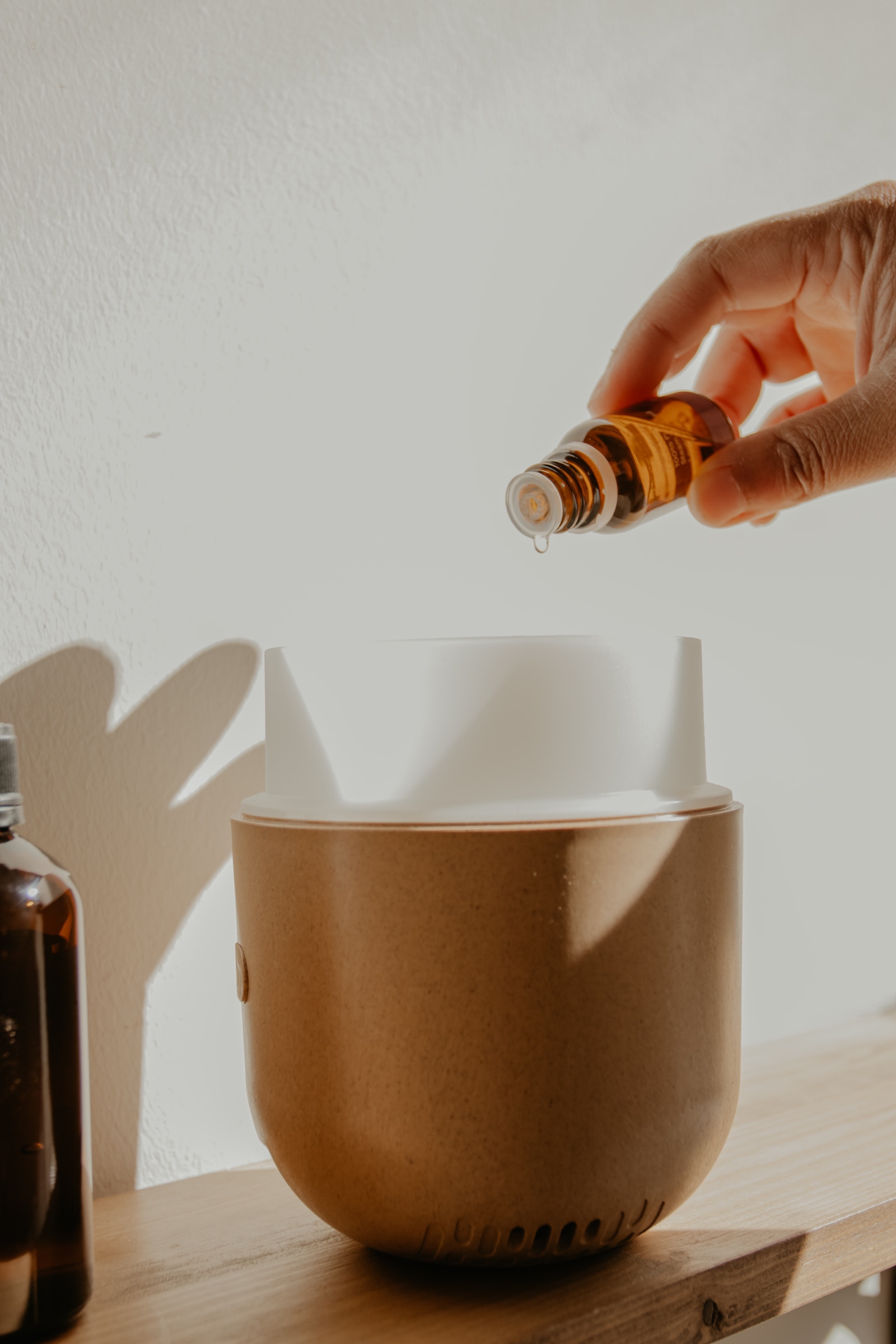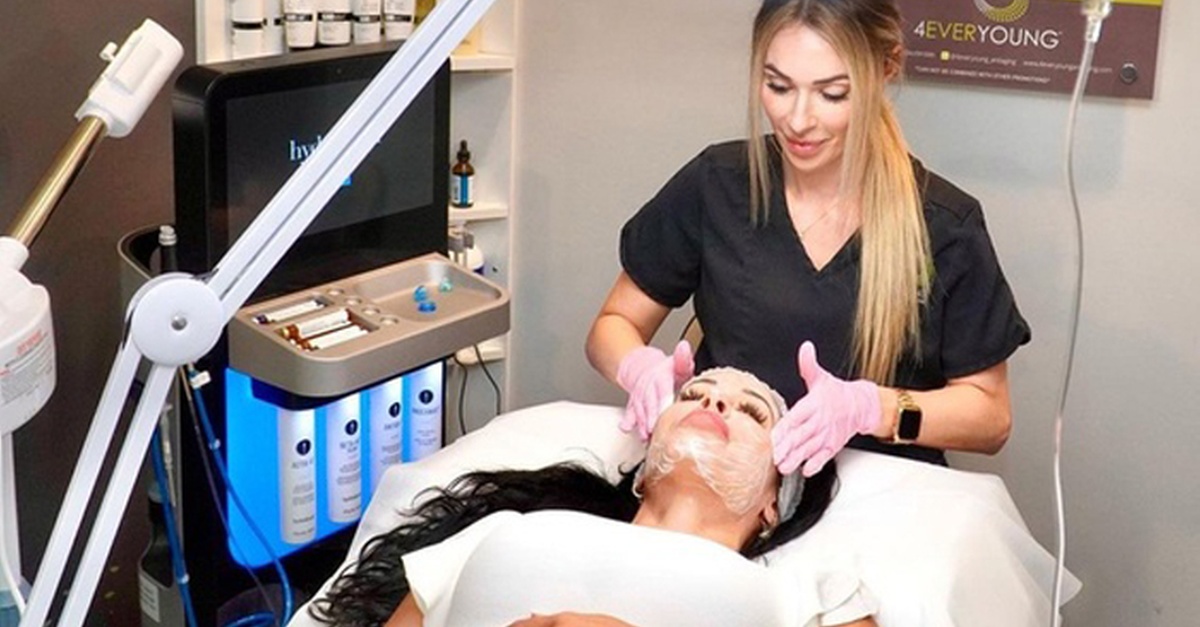Essential oils have been used for centuries for their various therapeutic benefits. These oils are derived from plants and contain the essence of the plant’s fragrance, which has been found to have a positive effect on the body and mind. Essential oils are known for their relaxing and rejuvenating properties, making them a popular choice for those looking to unwind after a long day or to improve their overall wellness.
There are many different types of essential oils available, each with its own unique benefits. Some of the most popular oils for relaxation and rejuvenation include lavender, chamomile, and peppermint. Lavender oil is known for its calming properties and can help to reduce stress and anxiety. Chamomile oil is also known for its calming effects and can help to promote relaxation and improve sleep. Peppermint oil is invigorating and can help to boost energy levels and improve mental clarity.
Whether you are looking to unwind after a long day at work, improve your mood, or simply promote overall wellness, essential oils can be a great addition to your self-care routine. With their natural and therapeutic properties, these oils can help you to feel more relaxed, rejuvenated, and refreshed.
Understanding Essential Oils
Essential oils are highly concentrated extracts derived from plants. They are usually obtained through a process called steam distillation, where steam is used to extract the oil from the plant. Essential oils can also be extracted through other methods like cold pressing, solvent extraction, and CO2 extraction.
Each essential oil has a unique chemical composition that determines its therapeutic properties. For example, lavender essential oil is known for its calming and relaxing effects, while peppermint essential oil is known for its invigorating and energizing properties.
Essential oils can be used in a variety of ways to promote relaxation and rejuvenation. They can be diffused in the air using a diffuser, added to a warm bath, or applied topically to the skin after being diluted with a carrier oil.
It’s important to note that essential oils are highly concentrated and should be used with caution. Some essential oils can cause skin irritation or allergic reactions, and others should not be used during pregnancy or by individuals with certain medical conditions.
Before using essential oils, it’s important to do your research and consult with a qualified aromatherapist or healthcare provider. It’s also important to purchase high-quality, pure essential oils from reputable sources to ensure their safety and effectiveness.
In summary, essential oils are highly concentrated extracts derived from plants that can be used to promote relaxation and rejuvenation. They should be used with caution and under the guidance of a qualified professional.
The Science Behind Aromatherapy
Aromatherapy is the practice of using essential oils for therapeutic benefit. Essential oils are extracted from various parts of plants, such as flowers, leaves, and roots, and are known for their distinct fragrances. When inhaled, the scent molecules in essential oils travel from the olfactory nerves directly to the brain, which then impacts the amygdala, the emotional center of the brain. This process can result in enhanced emotional wellness, calmness, relaxation, or rejuvenation of the body. Essential oils can also be absorbed by the skin.
The use of aromatherapy has been around for centuries, and its benefits have been studied extensively. A significant body of research on essential oils has been conducted by various industries, including the food, flavoring, cosmetics, and tobacco industries. They are most interested in the flavor, mood alteration, and preservative qualities of essential oils. Some of these companies have also conducted extensive research on the toxicity and safety of essential oils.
Studies have shown that certain essential oils have health benefits. For example, lavender oil has been found to reduce anxiety and promote relaxation. Peppermint oil has been shown to improve cognitive function and reduce headaches. Eucalyptus oil has been found to have anti-inflammatory and analgesic properties, making it useful for treating respiratory problems such as asthma and bronchitis.
While more research is needed to fully understand the mechanisms behind aromatherapy, it is clear that it can have a positive impact on the nervous system and overall health. Aromatherapy is often used in conjunction with other relaxation techniques, such as massage and meditation, to enhance their effects. It is important to note that essential oils should be used with caution and under the guidance of a qualified practitioner, as they can be toxic if used improperly.
Essential Oils for Relaxation
Essential oils can be a natural way to promote relaxation and calmness. They work by stimulating the olfactory system, which is responsible for our sense of smell. When inhaled, essential oils can affect the limbic system, which is the part of the brain that controls emotions and memories.
Here are some essential oils that are known for their relaxing properties:
- Lavender: Lavender is one of the most popular essential oils for relaxation. It has a calming and soothing effect on the body and mind, making it a great choice for reducing stress and anxiety.
- Bergamot: Bergamot is a citrus oil that is known for its mood-lifting properties. It can help to reduce feelings of stress and anxiety, while promoting a sense of calmness.
- Chamomile: Chamomile is a gentle and calming oil that is often used to promote relaxation. It can help to reduce tension and anxiety, while promoting a sense of peace and tranquility.
- Ylang Ylang: Ylang Ylang is a sweet and floral oil that is known for its calming and relaxing properties. It can help to reduce feelings of stress and anxiety, while promoting a sense of calmness and balance.
- Frankincense: Frankincense is a grounding and calming oil that is often used in meditation and spiritual practices. It can help to reduce feelings of stress and anxiety, while promoting a sense of peace and relaxation.
Overall, essential oils can be a great way to promote relaxation and calmness. However, it’s important to remember that they should not be used as a substitute for professional medical treatment. If you are experiencing severe stress or anxiety, it’s important to seek help from a qualified healthcare professional.
Essential Oils for Rejuvenation
Essential oils have been used for centuries for their therapeutic properties. They can help rejuvenate the mind, body, and spirit, and provide relief from fatigue, stress, and other ailments. Here are some of the best essential oils for rejuvenation:
Lavender
Lavender is one of the most popular essential oils for relaxation and rejuvenation. It has a calming effect on the mind and body, and can help reduce stress and anxiety. It is also known for its ability to promote restful sleep, which is essential for rejuvenation.
Peppermint
Peppermint essential oil is invigorating and refreshing. It can help reduce fatigue and increase energy levels. It is also known for its ability to improve concentration and mental clarity, making it a great choice for those who need to stay focused and alert.
Lemon
Lemon essential oil has a bright, uplifting scent that can help boost mood and promote feelings of joy and happiness. It is also known for its ability to improve concentration and mental clarity, making it a great choice for those who need to stay focused and alert.
Rosemary
Rosemary essential oil has a stimulating and invigorating scent that can help reduce fatigue and increase energy levels. It is also known for its ability to improve memory and concentration, making it a great choice for students and professionals who need to stay focused and alert.
Frankincense
Frankincense essential oil has a calming and grounding effect on the mind and body. It can help reduce stress and anxiety, and promote feelings of peace and relaxation. It is also known for its ability to promote cellular health and rejuvenation, making it a great choice for those looking to improve their overall health and well-being.
In conclusion, essential oils can be a great natural remedy for rejuvenation. They can help reduce stress, fatigue, and other ailments, and promote feelings of relaxation, joy, and energy. When using essential oils, it is important to choose high-quality oils and use them safely and appropriately.

Popular Methods of Using Essential Oils
Essential oils can be used in various ways to achieve relaxation and rejuvenation. Here are some common methods of using essential oils:
Inhalation
Inhalation is one of the easiest and most effective ways to use essential oils. Simply open a bottle of pure essential oil and inhale deeply a few times. You can also add a few drops of essential oil to a bowl of hot water and inhale the steam. Another option is to use an aromatherapy diffuser that disperses the oil into the air.
Topical Application
Topical application involves applying essential oils directly to the skin. Before applying the oil, it is important to dilute it with a carrier oil such as coconut oil or almond oil. Massage the diluted oil onto the skin, focusing on areas that need relaxation or rejuvenation. You can also add a few drops of essential oil to your bathwater for a relaxing soak.
Bathing
Bathing with essential oils can be a luxurious and relaxing experience. Add a few drops of essential oil to your bathwater and soak for at least 15 minutes. The warm water will help to open up your pores, allowing the oil to be absorbed into your skin. You can also add Epsom salts to your bathwater for added relaxation.
Remember to always use caution when using essential oils. Some oils can be irritating to the skin, so it is important to dilute them properly before use. Additionally, some oils can be toxic if ingested, so it is important to keep them out of reach of children and pets.
In summary, essential oils can be used in a variety of ways to achieve relaxation and rejuvenation. Inhalation, topical application, and bathing are all effective methods of use. When using essential oils, always dilute them properly and use caution to avoid any adverse reactions.
Safety and Precautions
When using essential oils for relaxation and rejuvenation, it is important to take certain safety precautions to avoid potential hazards. Here are some things to keep in mind:
Caution
Essential oils are highly concentrated and potent, and should be used with caution. It is important to always follow the recommended dosage and dilution guidelines, as using too much or applying undiluted oils directly to the skin can cause adverse reactions.
Skin
Before using any essential oil, it is important to do a patch test to check for any skin irritation or allergic reaction. Apply a small amount of the diluted oil to a small patch of skin, such as the inside of the wrist, and wait 24 hours to see if any redness, swelling, or itching occurs.
Skin Irritation
If you experience skin irritation or discomfort after using an essential oil, immediately stop using it and wash the affected area with soap and water. If the irritation persists, seek medical attention.
Allergic Reaction
Some people may be allergic to certain essential oils, even if they have used them before without any problems. If you experience symptoms such as hives, difficulty breathing, or swelling of the face or throat after using an essential oil, seek medical attention immediately.
FDA
It is important to note that the FDA does not regulate essential oils, so it is important to do your own research and choose reputable brands that use high-quality, pure oils. Be wary of companies that make exaggerated or false claims about the benefits of their products.
By following these safety precautions, you can enjoy the relaxing and rejuvenating benefits of essential oils without any adverse effects.

